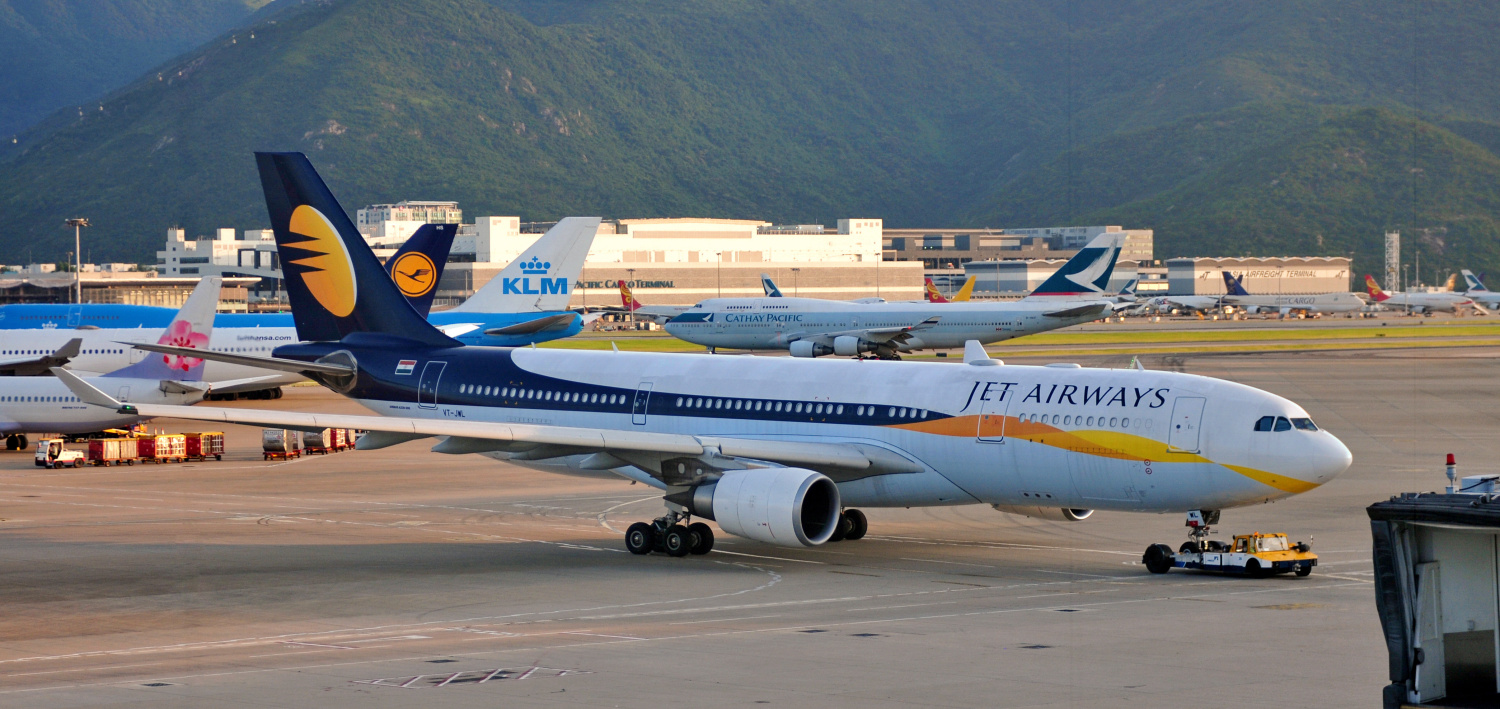
(Photo : Wikimedia commons)
The court's decision led to the forfeiture of Rs 200 crore by the Jalan Kalrock Consortium and the invocation of the Rs 150 crore Performance Bank Guarantee.
The Indian aviation industry and investors are reeling from the recent Supreme Court order to liquidate Jet Airways. This decision has left approximately 1.48 lakh retail shareholders, who hold around 20% stake in the airline, in a state of uncertainty. The Supreme Court's decision was in response to a plea filed by the Committee of Creditors (CoC), led by the State Bank of India. The CoC argued that the proposed revival plan was not in the best interest of lenders and questioned the National Company Law Appellate Tribunal (NCLAT) order upholding the resolution plan.
The court's decision has had an immediate impact on the stock market. The stock of Jet Airways, which was locked in a 5% lower circuit following the order, ended at Rs 34.04 apiece on Thursday. The share hit a high of Rs 63.15 in March but has lost more than 46% since then.
Impact on Jalan Kalrock Consortium and Shareholders
The court's decision also led to the forfeiture of Rs 200 crore infused by the Jalan Kalrock Consortium (JKC) and directed lenders to invoke the Rs 150 crore Performance Bank Guarantee (PBG). The court had previously warned of legal consequences if the JKC failed to furnish the bank guarantee.
The Jalan Kalrock Consortium's resolution plan included reducing public shareholding from 25% to 0.21%, which would have wiped out the market value of public shareholders. Despite this, retail investors continued to trade in the stock, betting on a revival.
Jet Airways: A Look Back and the Way Forward
Jet Airways, once one of India's largest and most popular airlines, entered the corporate insolvency resolution process under the Insolvency and Bankruptcy Code (IBC) in June 2019 due to severe financial distress. The airline has been grounded since 2019, but retail investors have continued to trade in the stock, betting on a revival despite the obvious threat of the company being delisted in the event of a successful insolvency resolution or liquidation.
The current market capitalisation of Jet Airways stands at Rs 386.69 crore, with retail shareholding in the airline worth around Rs 74.6 crore. Other major shareholders include Punjab National Bank (26%), Etihad Airways (24%), and the erstwhile promoters (25%).
This is not the first time that a major airline has faced such a crisis. In the past, airlines like Kingfisher Airlines and Air Deccan have faced similar financial distress leading to their eventual shutdown. The fate of Jet Airways serves as a stark reminder of the volatility and risks associated with the aviation industry.
The Supreme Court's decision has raised several questions about the future of the airline, the fate of its employees, and the impact on the aviation industry as a whole. It also raises questions about the role of regulatory bodies and the government in preventing such crises.









